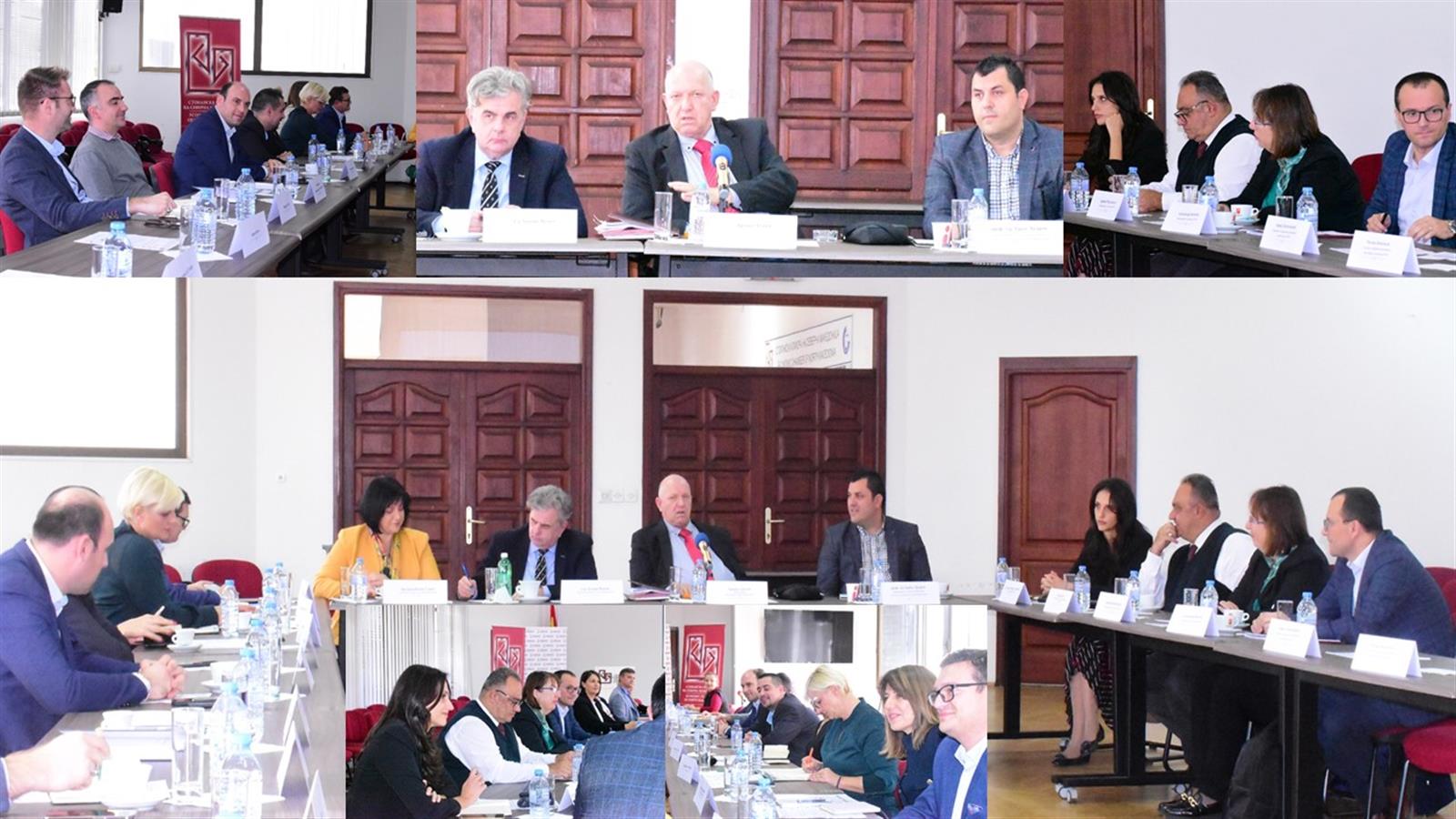Aiming to achieve the goals and priorities in the making and implementation of policies to promote exports, strengthen the export potentials of the domestic economy, stimulate the competitiveness of export-oriented companies, and explore new markets, the National Export Council held its third session on 7 November.
The session was led by the President of the National Export Council, Branko Azeski, who emphasized to the members the importance that the Council holds as the main mechanism for public-private dialogue in creating guidelines and specific activities to support export capacities and build mechanisms that will contribute to exports and the growth of the domestic economy.
At the invitation of the Council's president, Dr. Tatjana Shterjova-Dushkovska, Secretary General of the Western Balkans 6 Chamber Investment Forum (WB6 CIF), also made a presentation before the members, outlining measures to support exports in the Western Balkan countries. In her presentation, Dr. Shterjova-Dushkovska conducted a comparative analysis of support measures in the six economies in the region, with a special focus on Serbia's model. In Serbia, measures to support domestic export companies are implemented through two agencies: the Export Credit and Insurance Agency and the Development Agency of Serbia. These agencies provide a wide range of services and activities, including lines of credit, guarantees, factoring, participation in trade fairs, and consultancy support for the development of a strategic positioning on the target market and export marketing activities.
According to the credit portfolio for the year 2022 of the Export Credit and Insurance Agency, Serbia achieved the highest export volume to North Macedonia, accounting for 18.71% or a total of €10,428,602.00 in products from the manufacturing, food, and pharmaceutical industries, concluded Shterjova-Dushkovska.
The concept of the operation of the Export Institute at the Chamber, representing a professional, service-oriented tool to support export-oriented companies, was also presented to the Council members. The Institute will offer training and workshops for the development of human resources capacities, providing knowledge and skills necessary for the realization of export activities. Biljana Peeva-Gjurikj, Operations Director of the Economic Chamber of North Macedonia, added that, in addition to the educational aspect, the Institute will prepare analyses and research with data on export competitiveness in targeted foreign markets, information on customs and tax policies, non-tariff barriers, and other data of interest to export-oriented companies.
The National Export Council, formed under the Private Sector Regional Integration Support Activity (PSRISA) implemented by the Chamber in partnership with the United States Agency for International Development (USAID), serves as the main mechanism for public-private dialogue addressing all issues related to the promotion and support of exports.
In the coming period, the National Export Council will continue to work on identifying the challenges faced by exporting companies and developing measures and solutions to address these challenges.
